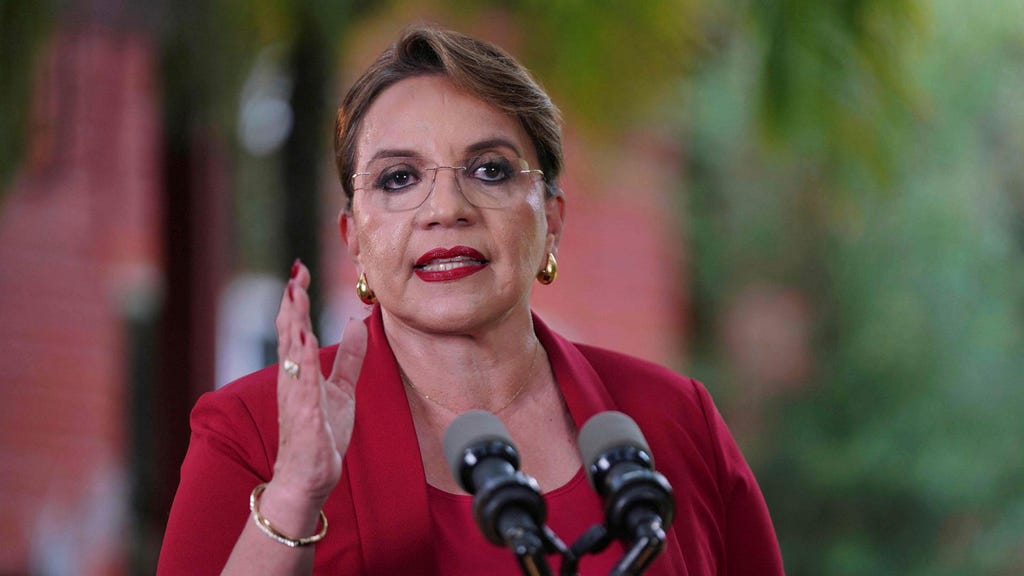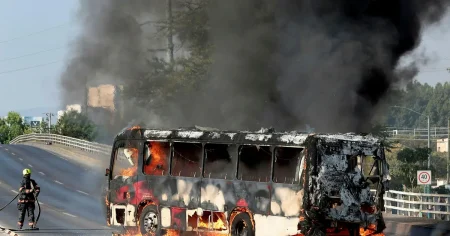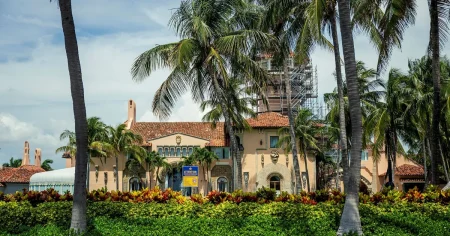The potential for mass deportation of undocumented Honduran immigrants by the United States under a hypothetical Donald Trump presidency has sparked concerns from Honduran President Xiomara Castro, who has publicly warned of the potential repercussions for the US military presence in her country. Castro’s assertion, reported by the New York Times, centers on the Soto Cano Air Base, a vital US military installation in Honduras, and suggests that the forced repatriation of a large number of Honduran nationals could lead to the withdrawal of the approximately 1,000 US troops stationed there. The underlying implication is a complex interplay of economic, political, and social factors, hinting at the significant role remittances sent by Honduran immigrants in the US play in the Honduran economy, and the potential destabilizing effect their removal could have. Furthermore, Castro’s statement can be interpreted as a strategic political maneuver, leveraging the potential economic impact to emphasize the importance of a respectful and collaborative relationship between the two nations on immigration issues.
The economic impact of potential mass deportations underscores Castro’s concerns. Remittances from Hondurans living abroad, primarily in the United States, constitute a substantial portion of Honduras’s GDP. These funds are crucial for supporting families, stimulating local economies, and bolstering the nation’s overall financial stability. A sudden influx of deportees would not only strain existing resources and social services but also significantly reduce the inflow of remittances, potentially triggering a cascade of negative economic consequences. This economic vulnerability forms a key component of Castro’s argument, implicitly highlighting the interconnectedness of the two nations’ economies and the potential for mutually detrimental outcomes stemming from drastic immigration policies. The potential loss of US aid associated with the base closure would further exacerbate the economic impact, placing additional strain on the Honduran government.
Beyond the immediate economic implications, the potential withdrawal of US troops raises broader geopolitical and security concerns. The Soto Cano Air Base serves as a crucial hub for US military operations in Central America, supporting counter-narcotics efforts, disaster relief operations, and regional security initiatives. Its closure would significantly diminish the US’s ability to project power and influence in the region, potentially creating a vacuum that could be exploited by transnational criminal organizations or other destabilizing forces. This strategic dimension adds another layer of complexity to Castro’s statement, emphasizing the importance of the base not only for Honduras but also for broader US strategic interests in the region. The potential for increased instability and insecurity following a withdrawal underscores the interconnected nature of security concerns and migration flows.
Castro’s statement also carries a significant political weight, reflecting a growing assertiveness by Latin American nations in their dealings with the United States on immigration issues. It represents a departure from traditional power dynamics, where smaller nations often felt compelled to acquiesce to US policy demands. By linking the future of the US military presence to the treatment of Honduran immigrants, Castro is effectively challenging the US to consider the potential consequences of its actions more carefully. This assertive stance signals a shift in the regional political landscape, where issues of sovereignty and national interest are increasingly taking precedence over traditional deference to US power. The statement serves as a potent reminder of the complex interplay of domestic and international politics and the growing influence of Latin American nations in shaping regional dialogues.
Furthermore, Castro’s warning can be interpreted as a call for a more comprehensive and humane approach to immigration policy. By highlighting the potential for instability and economic hardship resulting from mass deportations, she is implicitly advocating for policies that address the root causes of migration, such as poverty, violence, and lack of opportunity in Honduras. This perspective emphasizes the need for collaborative efforts to foster sustainable development and improve living conditions in sending countries, thereby reducing the incentives for emigration in the first place. This broader perspective challenges the simplistic notion of border enforcement as the sole solution to complex migration flows and underscores the need for a more nuanced and humane approach that considers the underlying social and economic drivers of migration.
In conclusion, President Xiomara Castro’s warning represents a multi-faceted statement with significant implications for US-Honduras relations and regional stability. It highlights the interconnected nature of economic, political, and security concerns, underscoring the potential for unintended consequences stemming from drastic immigration policies. By linking the presence of the US military base to the treatment of Honduran immigrants, Castro is sending a clear message about the importance of mutual respect and cooperation in addressing complex migration challenges. Her statement is a call for a more comprehensive and humane approach that addresses the root causes of migration and acknowledges the interconnected destinies of the two nations. It also reflects a growing assertiveness by Latin American nations in challenging traditional power dynamics and advocating for their national interests in the context of a changing global landscape.














